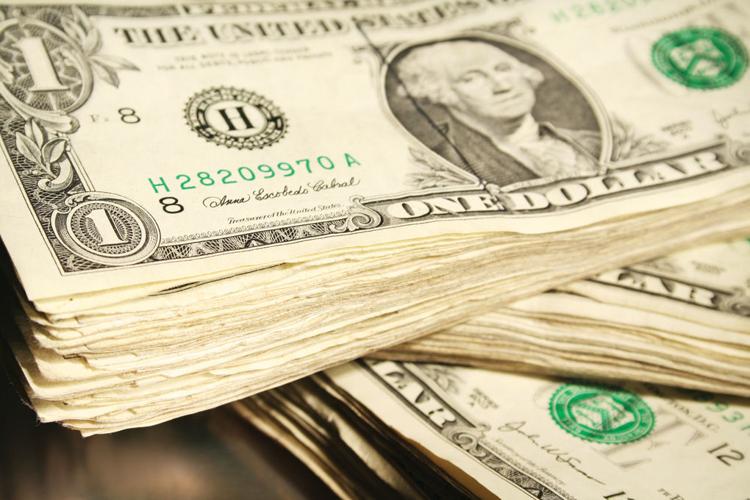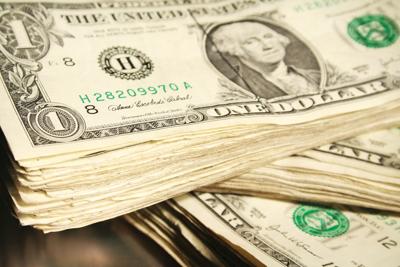Louisiana perpetually falls near the bottom of lists evaluating measures of public health and citizen welfare — in , and among children and adults, among other glum statistics. But one New Orleans economist says a simple solution could go a long way toward remedying the state's many (many) ills.
Karl Widerquist has been writing about universal basic income (UBI) since the end of his economics Ph.D. studies, in the late 1990s. He's convinced that some sort of income guarantee — in which the federal government gives a sum of no-strings-attached cash to every citizen — is the cure for many of the difficulties caused by stagnant wages, increasing automation and other difficulties workers have experienced since the late 1970s.��
In Louisiana, where the public health consequences of chronic stress, insufficient or low-quality food and other maladies are visited on the state's many low-wage workers, Widerquist says UBI could help level the playing field.

Courtesy Karl Widerquist
"There's so many people in New Orleans who are growing up in poverty," Widerquist says. "Poverty kills people, causes disease and death, and it causes inequalities that will last a lifetime. Basic income will help in all of these things."
Widerquist, who splits his time between living in New Orleans and teaching at Georgetown University's program in Qatar, was an early adopter of an idea which has moved into the mainstream in the past few years, . Though the concept of a guaranteed income dates back to the early 20th century, it has experienced a resurgence in the wake of the financial crisis and the Great Recession, he says.��
Advocates for basic income argue that it could create safety net for workers in a tumultuous modern economy, while streamlining complicated social welfare programs that frequently throw up a bureaucratic barrier between people and public assistance during the times that they need it most.��
"If you really care about people, you need to give them cash. You need to stop supervising them, saying 'This is what you need,'" Widerquist says.��
Widerquist says the U.S. has come close to passing legislation establishing UBI in the past, including twice in the 1970s, when UBI bills passed the House of Representatives but failed to clear the Senate. (Richard Nixon was a cautious supporter.) In places that have experimented with a basic income, which includes two cities in the U.S., Finland, Kenya and Canada, Widerquist says many of the fears about the chaos it might provoke — would people stop working completely? — have proved unfounded.��
"It doesn't cause so much withdrawal from the labor force [as] to make it unaffordable ... You're not going to see massive [groups of] people not doing their jobs. Living just above the poverty line is not attractive," he says.��
The key idea of basic income is to give people enough money to create a cushion that can carry them through periods of reduced work. Economists disagree on how much money that might be, but some have suggested it could be .��
Widerquist says UBI would smooth out periods of income instability that affect even people who think of themselves as middle class, such as the years just after university studies. It could mitigate dips into poverty for women who recently have left relationships that may be harmful or abusive, and would return an element of choice to workers: how much to work, whether to leave a job that doesn't suit them, or how to respond when the available jobs just don't pay enough money to comfortably get by.��
"We have a society that's built on threats: keep working or you might someday be poor," he says. "People like to pretend that basic income is bad for workers and good for these lazy layabouts, but it's good for every single person who works for a living. The worst thing you can do for a worker is put them in the position where they have no other choice but to work."
In his writings, Widerquist refutes some other ideas about UBI he says are common misconceptions. rebuts the notion that UBI would be too expensive — Widerquist says most calculations just look at the gross cost or payroll deductions, not accounting for the money people would receive in return.��
He adds that UBI can return a measure of political power to people who are experiencing poverty. "The poorer people are, the less time they have to spend on politics," he says.��
It's this last he thinks could be critically important in his home state, which he says has legislators who "starve all Louisiana's municipalities of funds" and counts teachers among its working poor, as well as being home to a large percentage of people who live in poverty or just above the poverty line.
In his view, it's been easy for state politicians to pass policies which negatively impact economically struggling citizens. UBI could give Louisianans a measure of security which would allow them to reengage politically.
"There are so many middle-class and lower-class people in Louisiana who don't vote," he says.��




